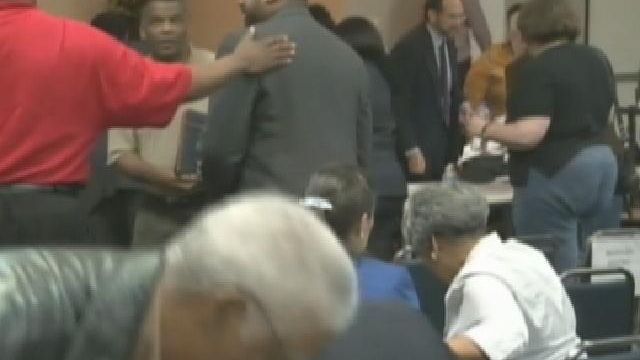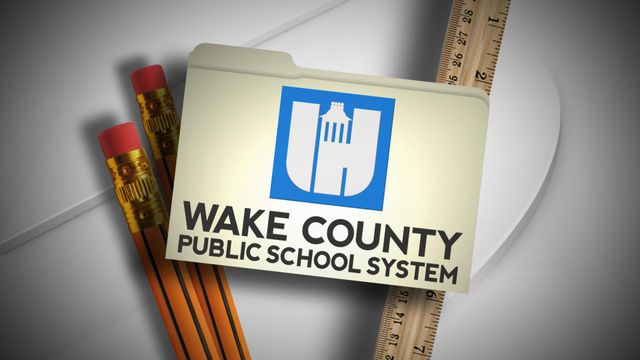Federal civil rights investigators hear community thoughts on Wake schools
Investigators with the federal civil rights office heard the community's thoughts on Wake County public school policies during a forum at Martin Street Baptist Church in Raleigh on Wednesday.
Posted — UpdatedA five member panel from the U.S. Department of Education's Office for Civil Rights traveled from Washington D.C. to Raleigh on Wednesday for a public hearing.
Last summer, the NAACP filed a complaint with the office alleging a plan to change how students are assigned to schools across the county would concentrate poor students into schools in poor communities.
As part of its investigation, the OCR wanted to hear directly from citizens about the Wake County school board's student assignment policy.
Thirty-two people spoke at the forum held at the Martin Street Baptist Church in Raleigh.
Many told the panel the change in policy would kill diversity in the schools.
“Neighborhood schools mean re-segregated schools," retired educator John Eberhard said.
Amy Lee, the parent of a Wake County student, said the board is "our schools into have and have nots.”
While voices against the change in assignment policy dominated the hearing, some also came to speak out in favor of it.
Substitute teacher Jeral Mooneyham argued the old policy did not work.
“The policy of busing for diversity has amounted to dump them and flunk them," Mooneyham said.
“We already had racially identifiable schools and nobody said anything about it,” parent Jennifer Mansfield said.
Two Wake County school board members, Deborah Prickett and Keith Sutton, also attended the meeting.
Earlier in the day, the OCR met with school board members to discuss reasons behind their decisions.
Board member John Tedesco told WRAL News that he thinks the investigation will have a positive outcome.
"It's a great opportunity for us to showcase all of the good work we've done, and to showcase how this is much more detailed and substantive than bumper sticker politics that have been tossed around," he said.
Tedesco questioned the venue for the public hearing saying that Martin Street Baptist was not a neutral spot because it has been the site of several other pro-diversity meetings.
“It's a group of people brought together and hosted, and even the speakers were screened by the plaintiffs in the case. That seems a little unfair to me," he said.
State NAACP President Rev. William Barber denied Tedesco's claims.
“This is a church, one of the most outstanding churches. This is a fellowship hall. We have done better than they did. They kept everything small, wouldn't open it up. People had to sign in to get in. You don't see anyone being denied here, everybody can come," Barber said.
Barber spoke out during the public meeting telling the OCR that getting rid of the previous student assignment policy was a big mistake.
"This majority of the school board came in and dismantled a nationally recognized, successful plan without a plan," Barber said. "The board came up with their own ideas and ignored solid research."
After months of heated debate among board members and within the community about how to assign students closer to their homes, the board has deferred to Superintendent Tony Tata to develop a student plan.
Tata has temporarily reassigned six members of his staff to focus entirely on that task. Last week, he began sharing that plan with members of the school board.
Tata said he hopes to recommend a new student assignment policy to the board by June.
There is no timeline on how long it might take the OCR to wrap up its investigation.
• Credits
Copyright 2024 by Capitol Broadcasting Company. All rights reserved. This material may not be published, broadcast, rewritten or redistributed.






